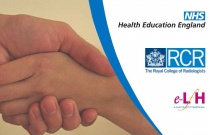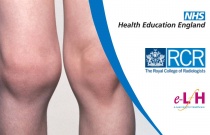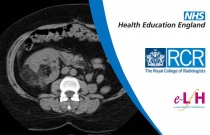Heart Failure - Anesthesiology
Natalie Forshaw and Nick Fletcher
0.50 Hours
This session describes the various aetiologies, pathophysiology, clinical features and management of heart failure in the critical care setting.
Image Interpretation - Gynaecological Ultrasound: The Uterus
Vivien Gibbs
0.50 Hours
This session considers the sonographic appearance of the adult premenopausal uterus. It will include an overview of normal appearances and common pathology, and discuss common pitfalls to avoid. Tips on reporting will be offered.
Image Interpretation - Gynaecological Ultrasound: Postmenopausal Pelvis
Hazel Edwards
0.50 Hours
This session considers the sonographic appearance of the postmenopausal pelvis. It will include an overview of normal appearances and common pathology, and discuss common pitfalls to avoid. Tips on reporting will be offered.
Image Interpretation - Abdominal Ultrasound: Pancreas - Session 2
Zahir Amin and Doug Pendsé
0.50 Hours
This session reviews ultrasound of the pancreas. It will include an overview of common pathologies. Tips on technique and report writing will be offered.
Image Interpretation - Abdominal Ultrasound: Kidneys
Peter Cantin
This session considers ultrasound of the adult kidneys. It will give an overview of normal sonographic anatomy, anatomical variants and common pathological appearances. Tips on avoiding pitfalls and report writing will be offered.
Image Interpretation - Abdominal Ultrasound: Miscellaneous
Hazel Edwards
0.50 Hours
This session considers the sonographic appearance of bowel, abdominal lymphadenopathy and ascites. It will provide a basic overview and discuss common pitfalls to avoid. Tips on reporting will be offered.
Image Interpretation - Abdominal Ultrasound: Adult Liver Transplant
Jane Smith
0.50 Hours
This session will provide a brief overview of the adult orthotopic liver transplant. Common complications of liver transplant will be discussed. Advice on how to avoid common pitfalls and tips on reporting will be offered.
Image Interpretation - Abdominal Ultrasound: Renal Transplant
Jane Belfield and Steven Powel
This session will explain how to undertake ultrasound of a renal transplant. Normal findings and commonly seen complications of renal transplant will be discussed. Tips on reporting will be offered.
Image Interpretation - Men's Health Ultrasound: Testes - Session 2
Will Topping and Hazel Edwards
0.50 Hours
This session will discuss common pathologies of the testis, epididymis and adnexum. Tips on report writing and how to avoid common pitfalls will be offered.
Image Interpretation - Vascular Ultrasound: Introduction and Image Optimisation
Emma Chung
0.50 Hours
This session provides an introduction to imaging and evaluating blood flow in vessels. The principles underlying Doppler measurements, equipment use, and scanning technique will be discussed. Tips on avoiding pitfalls and report writing will be offered.
Image Interpretation - Vascular Ultrasound: Venous Insufficiency - Session 1
Tim Hartshorne
0.50 Hours
This session will describe the practical aspect of scanning for lower limb venous insufficiency. It will include basic anatomy and anatomical variants as well as basic physiology.
Image Interpretation - Musculoskeletal Ultrasound: Neonatal and Paediatric Hip
Rebecca Baker, Ellen Dyer and Lol Berman
0.50 Hours
This session will cover the technique, anatomy and abnormalities detected by ultrasound scanning for developmental dysplasia and effusion of the neonatal and paediatric hip. Tips on avoiding pitfalls and on report writing will be offered.
Image Interpretation - Musculoskeletal Ultrasound: Abdominal Wall and Groin
Karen Partington and Philip Robinson
0.50 Hours
This session will review the sonography of common pathology of the abdominal wall and groin with emphasis on relevant anatomy, hernia classification and pitfalls in interpretation. Reporting tips will be offered.
Image Interpretation - Head and Neck Ultrasound: Thyroid and Parathyroid
Neil Cozens and Andrew Longmead
0.50 Hours
This session considers the sonographic appearance of the thyroid and parathyroid glands. It will include an overview of normal appearances, benign and malignant nodules, and other pathology. Tips on avoiding pitfalls and reporting will be offered.
Fractures of Metacarpals and Phalanges
Sridhar Kamath
0.75 Hours
This session provides classification of metacarpal and phalangeal fractures, mechanisms of injury, and potential complications. It emphasises the information required from the radiologist in the management of these fractures.
Hip Pain Following Total Hip Arthroplasty
Muhammad Ismail
0.50 Hours
This session is designed to teach the common causes of pain following total hip replacement (THR) and allows you to formulate a management plan specific to the suspected diagnosis.
Juvenile Idiopathic Arthritis
Henk Jongschaap and Sumeet Miranda
0.25 Hours
This session will provide a clinical overview, differential diagnosis and some examples of juvenile idiopathic arthritis (JIA).
Infections of the Kidneys
Adrian Lim
This session is about the various types of urinary tract infections (UTIs), common causes and presentations of renal infections related to their imaging findings. It also discusses evaluation and management based on the severity of the infection.
Imaging of Suspected Hydronephrosis and Ureteric Obstruction
Sarah Natas and Giles Rottenberg
0.75 Hours
This session covers dilatation of the upper renal tract including definition, causes, methods of investigation and treatment.
Imaging of the Indeterminate Renal Mass
Uday Patel
Masses in the kidney are one of the most commonly found abnormalities on routine cross-sectional imaging. The nature of the vast majority is obvious on initial findings but a small minority are of indeterminate appearance. This session describes how an indeterminate renal mass can be evaluated by radiological imaging.
Imaging after Bladder Reconstruction or Diversion
David Rickards
0.50 Hours
In some cases, the bladder function is so poor that the only way urine expulsion can be maintained is to reconstruct the bladder, either by total diversion or surgical augmentation. In either case, the radiological anatomy will be much altered and this session describes the various types of reconstructions that may be encountere....
Introduction to Evidence Based Practice
Kevork Hopayian
0.50 Hours
This session considers the value that evidence-based practice brings to GPs and their patients. You will learn some of the basic skills needed. This session was reviewed by Sally Higginbottom and last updated in March 2015.
Clinical Governance
Thomas Lewis
0.25 Hours
This session outlines the principles of clinical governance, including how clinical governance works for individual clinicians, and how clinical governance is applied to whole organisations to assure and improve quality. This session supports the development of leadership in clinical settings.
Introduction to the Healthy Child Programme
Mitch Blair
0.50 Hours
This session traces the history of the development of the current healthy child programme (pregnancy to five years old) and outlines its main aims and programme components: screening, immunisation, health promotion and behaviour change and parenting support. The session also describes the philosophical change in approach from....
Full-field Electroretinography Part 1
Anthony G. Robson and Antonio Calcagni
0.50 Hours
This session describes the full field electroretinography (ff-ERG) procedure and principles and a normal set of ff-ERG results. It describes the physiological significance of the main ERG components and outlines how responses are measured and interpreted.
























